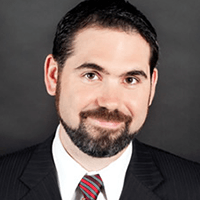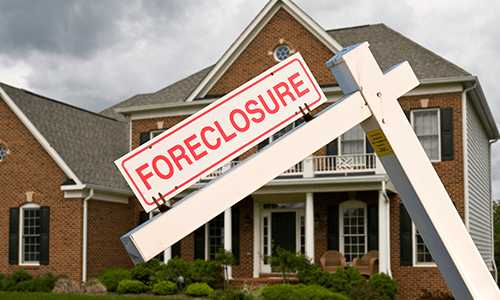During the previous Illinois General Assembly legislative session, Representative Drury introduced House Bill 3755, which would have amended the Condominium Property Act (the “Act”) to allow a unit owner to recover attorneys’ fees and costs from his or her association if he or she prevailed in any litigation or arbitration proceeding, regardless of whether that unit owner was the plaintiff or defendant in such proceeding. Despite strong opposition, House Bill 3755 did pass out of the House and into the Senate, but did not go further. The support that bill received, and its relative success in moving out of the House, seems to indicate that we have not heard the last about fee-shifting in favor of unit owners.
I think it is fair to say that those who have been involved in the community association industry over the last several years are well aware of growing advocacy for individual unit owner rights in the face of alleged or perceived oppressive boards. High profile cases such as Palm v. 2800 Lake Shore Drive Condominium Association only adds fuel to that fire. One thing that I have heard repeatedly is that individual unit owners have little to no recourse against abusive or oppressive boards. Specifically, the expense of litigation against an association is cost prohibitive for individual unit owners; and thus, unit owners are at the mercy of capricious boards. One solution that has been bandied about is allowing unit owners the ability to recover attorneys’ fees. Ergo, House Bill 3755 was introduced.
For context, readers should be aware that the “American Rule”, in contrast to the “English Rule” or “European Rule”, is the default rule in the United States. Under the English Rule, the wining party in a litigation proceeding can shift its expenses to the losing party; in other words, the loser pays the winner’s fees and costs. Under the American Rule, which was adopted early in the American colonies, each party pays their own fees and costs, regardless of who wins in the litigation proceeding. Generally, the American Rule applies unless fee-shifting is permitted pursuant to an agreement between the disputing parties (i.e. a contract) or pursuant to statute.
Typically, condominium declarations (which are deemed contracts) do not provide for unit owners to recover legal expenses in disputes with the association. Except for in very limited circumstances, the Act does not permit unit owner to recover legal expenses. However, declarations and the Act do provide associations the ability to recover legal expenses from unit owners in successful enforcement actions. Accordingly, the current situation generally favors the associations.
This fee-shifting issue has proved to be divisive, with emphatic voices on both sides decrying the other.
On one hand, at a fundamental level, there is a question about equal access to legal services and representation. On the other, there is a concern about chilling volunteerism in associations. And at the core of it all, is the functionality of a community comprised of disparate interests and backgrounds. After all, a condominium is a person’s home, and as the adage goes, a person’s home is their castle, but in the case of a condominium, a shared castle.
Proponents argue that fee-shifting in favor of unit owners will “level the playing field” and actually reduce litigation. They argue that, as mentioned above, unit owners do not have recourse against abusive or oppressive boards. The prospect of a paying legal expenses if they lose will incentivize boards to act lawfully and discourage frivolous or abusive actions against innocent unit owners. Often proponents point to the facts of the Palm case or the Spanish Court Two Condominium Association v. Carlson case as examples of bad acting boards that fee-shifting would address.
Opponents argue that fee-shifting in favor of unit owners will only serve to increase litigation, because it will incentivize unit owners and unscrupulous plaintiffs’ attorneys to file lawsuits against associations. It will likely result in higher assessments for all owners because budgets will account for increased legal services and insurance premiums are likely to increase with the rise of litigation. Also, it will likely further discourage owners to volunteer their time and energy to serve on the board if there is a high risk of being sued, which would only compound an already difficult task of finding qualified owners to serve on their boards.
There are legitimate points raised on both sides of the issue, and there are many questions left to explore. Would fee-shifting in favor of unit owners discourage or encourage settlement? Should unit owners have to show that individual board members acted maliciously or were grossly negligent to be entitled to recover fees and costs? Should individual board members be personally liable for fees and costs, and prohibited from looking to the association for indemnification, if they acted maliciously or were grossly negligent? Should fines be treated differently than assessments? Should collection actions be excluded from fee-shifting in favor of unit owners? Should mandatory arbitration be imposed for non-collection disputes? Should mandatory mediation be imposed for non-collection disputes as a condition precedent to any lawsuit or arbitration? Do other jurisdictions permit unit owners to recover legal expenses? How has fee-shifting worked in other jurisdictions? Does fee-shifting reduce or encourage litigation?
So, should the Act allow unit owners the ability to recover attorneys’ fees? I do not have the answer. But, if both sides are unwilling to discuss the legitimate concerns of the other side, and insist only on their own respective solution, then I am presently left wondering whether there is a win/win solution to the issue. Since, at the end of the day, we are talking about people’s homes and the communities in which they live, I hope we can find a positive solution that encourages and ensures the proper operation and administration of a condominium while giving individual unit owners assurance that the space enclosed and bounded by the horizontal and vertical planes shown on the plat is, in fact, their castle.






 CAI - Illinois Chapter
CAI - Illinois Chapter 

